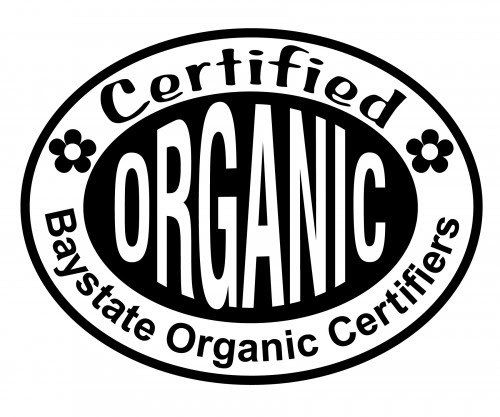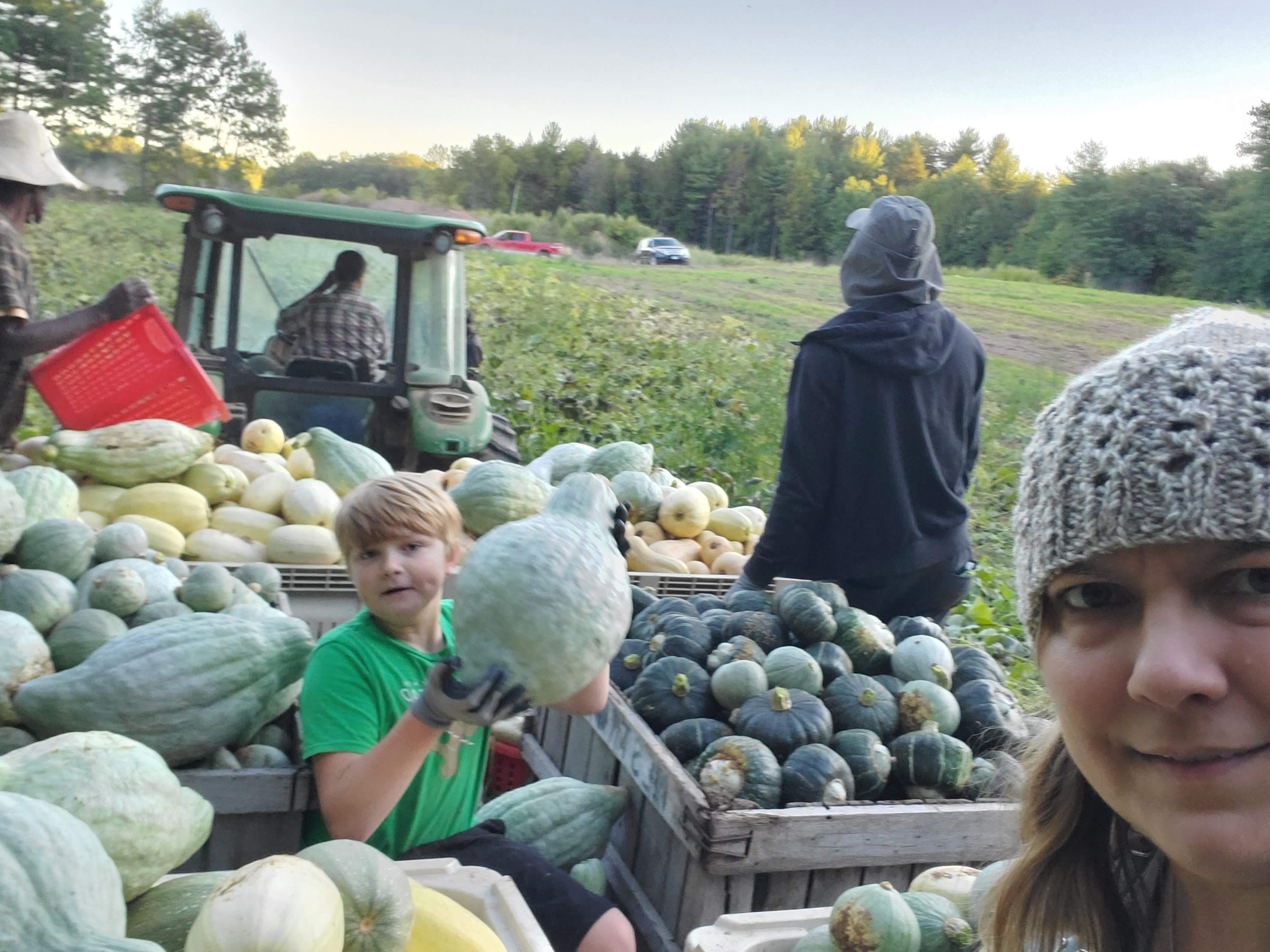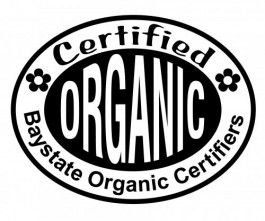As of Tuesday Sept 22, it will officially be “Fall,” but our Summer Veggie CSA continues for the next 5 weeks. We are looking at dates and crops right now and hope to announce the enrollment in our biweekly Autumn CSA by the end of the month.
As there is high potential for a frost this weekend (a month earlier than “normal,”) we are working overtime to bring in as many sensitive crops as we can. So our estimates of what will be available for your share, particularly early in the week, are a little more tenuous than usual; we appreciate your patience if we end up with substitutions. Most of the greens and root crops are expected to be fine, but a frost would bring a hard end to eggplants, peppers, tomatoes, summer squash and beans, and can damage any of the winter squash that are out in the fields. For the plants that tolerate frost, it can actually make them sweeter, as the plant tissues mobilize sugar to act as “antifreeze.” Read more here.
There are a lot of food labels used out there without any legal definition, e.g. “natural,” “no-spray,” “hormone-free,” and even “local,” so we feel it is important for our members to know how we do things. Last week we completed the on-site (but socially-distanced) inspection phase of our ninth annual Organic Certification through the Baystate Organic Certifiers agency.
 We are proud to be a USDA Certified Organic farm, but some people may wonder what exactly does that mean? Primarily, it means that our commitment to our members to provide you with produce -- free of synthetic fertilizers, pesticides, herbicides and genetically-modified organisms -- which has been grown in a manner that is sustainable and respectful of the natural environment, goes beyond just our promise to you.
We are proud to be a USDA Certified Organic farm, but some people may wonder what exactly does that mean? Primarily, it means that our commitment to our members to provide you with produce -- free of synthetic fertilizers, pesticides, herbicides and genetically-modified organisms -- which has been grown in a manner that is sustainable and respectful of the natural environment, goes beyond just our promise to you.
As stated by the CT Department of Agriculture “[the National Organic] program includes organic standards, prohibited practices, requirements producers need to meet, and the list of allowed and prohibited materials. The complexities of this certification have created the hardest commodity standards any producers have to comply with.

The grower or livestock producer who wishes to become certified organic must provide proof of using approved USDA organic standards and methods. These standards and methods integrate cultural, biological, and mechanical practices that foster cycling of resources, promote ecological balance, and conserve biodiversity. All growers or livestock producers wishing to market their products as certified organic must follow the laws that regulate the creation, production, handling, labeling, and trade of their organic products. These producers are also subject to random sampling verifying these practices are being followed.
Through these methods, the integrity of organic products is maintained, and with the inspections and product testing, consumers can purchase these items with confidence, knowing organic standards are being followed.”
A farmer must produce three years of Organic-compliant land history records before you can be eligible to apply for Organic certification. Once certified, you are required to keep extensive records of all seed sources, crop rotation plans, pest management, nutrient stewardship, and soil testing. A written audit is performed annually along with an onsite inspection and random tissue sampling to validate compliance.
We, at Oxen Hill Farm, are proud to be in our ninth season of Organic produce certification, and twelfth season of organic management practices.
 Another label that many folks are talking about is “Non-GMO.” There are some foods on the market today that include ingredients from organisms that have been modified to contain DNA from other organisms in order to transfer certain properties, traits, or characteristics to that new organism. These items with combined DNA are commonly called “GMOs,” which stands for Genetically Modified Organisms.
Another label that many folks are talking about is “Non-GMO.” There are some foods on the market today that include ingredients from organisms that have been modified to contain DNA from other organisms in order to transfer certain properties, traits, or characteristics to that new organism. These items with combined DNA are commonly called “GMOs,” which stands for Genetically Modified Organisms.

Gene editing is an interesting new technique, where plant scientists have been able to isolate areas of a plant's DNA that are responsible for certain traits, (such as how apple flesh will turn brown on the surface when exposed to air) and "turn them off." They may be classified differently than the "old-school" GMOs, as they have not had any foreign DNA included in their genome, rather had their own cut out or silenced, but in terms of the meaning of "modification," they have certainly been modified. It remains to be seen how such technology will be labeled and handled. We do not use any seeds from crops that have been gene-edited.
Foods may be “Non-GMO” without being Organic, as the Non-GMO status only addresses the genetic material of the food; while USDA Organic certification will always exclude any GMOs. All of our products are both free of GMOs and have been grown using practices compatible with their Organic certification.
Some of the produce you receive has been rinsed from the field, but like all fresh produce, should be thoroughly washed and, usually, refrigerated by you at home.
The Pinterest Board for week 14 is https://pin.it/qhhvz24esiwdin




